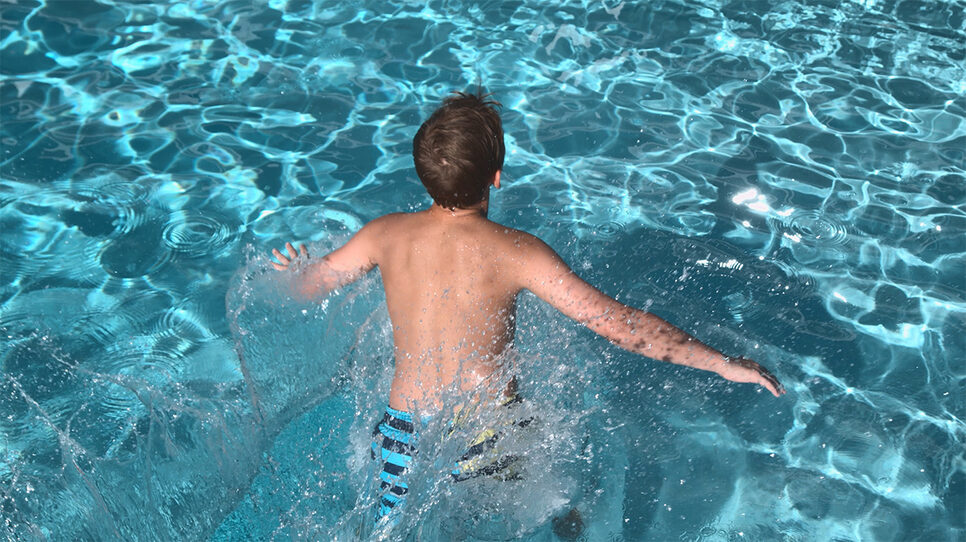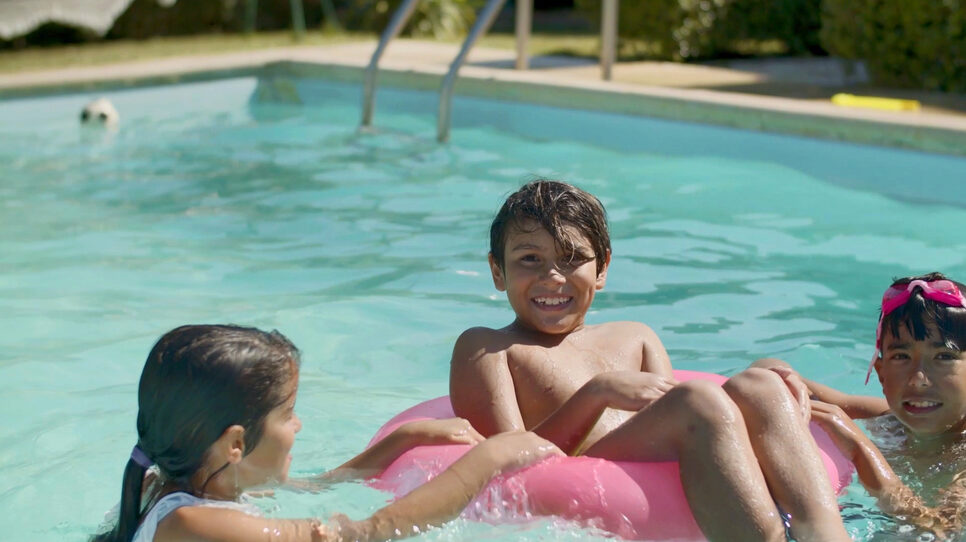Extreme heat can be deadly. Climate change will increase the number and intensity of very hot days. Nighttime temperatures may not drop low enough to give relief from the day’s heat. Below are resources to help you prepare for dealing with hot weather. Above all else, community is critical to preventing illness and death when it's extremely hot. Be sure to check on your friends, family and neighbors, and share these resources with them.
Find a place to stay cool
Cooling Centers in Washington County
Cooling Centers in Multnomah County
Cooling Centers in Clackamas County
Ways to stay cool on hot days
Watch our video to learn tips from Washington County community members on how to stay cool during extreme heat.
Learn More
- How to stay safe in the heat
Stay cool indoors
- Stay in an air-conditioned indoor location as much as you can.
- Drink plenty of fluids (water is best), even if you don't feel thirsty.
- Take cool showers or baths.
- Close your blinds and curtains to keep sunlight out.
- If the temperature falls at night, open your windows to let the cool air in (if it is safe to do so).
- Use fans but do not rely on a fan as your primary cooling device when it is very hot. Instead, mist yourself with a spray bottle, and then use the fan to get the cooling benefits of evaporation.
- Do not use your oven or do laundry on very hot days.
- Eat small, light meals.
If you go outside
- Drink plenty of fluids. Choose Gatorade or another sports drink if you are sweating a lot.
- Wear loose, lightweight, light-colored clothing.
- Use sunscreen.
- Exercise in the early morning when it's cooler.
- Avoid strenuous activity in the heat of the day.
- Never leave children or pets in cars. Read more summer pet care tips from the Oregon Veterinary Medical Association.
- Get a baby pool or play in a sprinkler. Visit a local sprayground or fountain.
- If you choose to swim or recreate in a local river or lake, be sure to wear a personal flotation device (life jacket) and take other safety precautions. More information on Red Cross page.
Download these guides to learn more
- Know the signs of heat stroke and heat exhaustion
When your body can't cool itself quickly enough, it can cause heat exhaustion. Symptoms of heat exhaustion include muscle cramps, weakness, dizziness, headache, nausea and vomiting. If you see someone with signs of overheating, move them to a cooler location, have them rest for a few minutes and give them a cool beverage to drink slowly. Get medical attention for them immediately if they do not feel better or if they are throwing up.
Heat exhaustion can lead to heat stroke, which can cause death or permanent disability unless treated immediately. Symptoms of heat stroke include:
- An extremely high body temperature (above 103°F)
- Red, hot, dry skin or profuse sweating
- Rapid, strong pulse
- Nausea, confusion and unconsciousness
- Know what rights you have in hot working conditions
If you are working in hot conditions during extreme heat, your employer is required by law to:
- Provide you with water, rest and shade.
- Have a plan for emergencies and train you on how to prevent heat illness.
- Allow new or returning workers to take more frequent breaks as you build up your heat tolerance.
- Monitor yourself and your coworkers for signs of heat illness.
As an employee, you have the right to speak up about hazards without fear of retaliation. For more information on whistleblower protections, visit www.whistleblowers.gov. To file a safety complaint about your worksite, visit www.osha.gov/workers.
Here are some ways you can stay safe when working in the heat.
- Get a free ride to a cooling center
- TriMet may offer free rides to cooling centers under emergency declarations or when the heat reaches 100 degrees or more.
- Ride to Care may be able to provide rides to cooling centers upon request. Call 855-321-4899
- Get help with your energy bills
- The Low Income Home Energy Assistance Program (LIHEAP) includes bill payment assistance, energy education, case management, and home weatherization services.
- The Oregon Energy Assistance Program (OEAP) is a low-income electric bill payment assistance program for customers of Pacific Power and Portland General Electric.
- Get up to 60% off your monthly electric bill through Portland General Electric's (PGE) Income Qualified Bill Discount Program
- The Oregon Energy Fund (OEF) provides funds for energy assistance to more than 30 nonprofits that distribute to community members in need.
- Apply for home heating and cooling support
Weatherization
You want to be sure your home is staying warm in the winter and cool in the summer. Weatherizing your home involves finding areas where warm or cool air may be lost, like windows, doors, and vents, and improving them. The following organizations provide free or low-cost weatherization assistance to low-income households.
- Community Action
- The Low Income Weatherization Program provides weatherization and energy conservation services at no cost to households at or below 200% of federal poverty income level.
- Through Energy Trust landlords can receive up to $250,000 per year in cash incentives for increasing energy efficiency and weatherization at multifamily properties they manage.
Cooling/Heating Support
- If you're an Oregon Health Plan (OHP) member, you might be able to receive an air conditioner through their HRSN Home Changes for Health Benefits program.
- Trillium's Flexible Services Program provides items and services to patients that benefit your health but might not be covered through traditional medical billing. Visit their webpages to learn how you can apply for heating and cooling support through their Flexible Services Program.
- Rebates are available for the installation of heat pumps. Both renters and homeowners can be eligible. Rebate amounts are based on income and the efficiency of the heat pump installed.
- Washington County is offering rebates of $1,500-$4,000 when you replace your old wood stove with a new stove, insert or other heating system. Some households will qualify for a full-cost replacement. We also have the occasional wood stove turn-in event where you can get paid to bring in your old wood stove. See if you are eligible to replace your old wood stove through the Woodstove Exchange Program.
- Low-income renters and owners can receive energy bill credits and enjoy the benefits of solar energy by joining the Oregon Community Solar Program.
Cooling/Heating Incentives for Landlords
- Energy Trust of Oregon offers reimbursement of ductless heat pumps and other select cooling devices for landlords managing multifamily housing, as well as smart thermostats and other energy tools.
FOR NON-URGENT INQUIRIES ONLY:
Contact the HHS Climate and Health Team.
Contact(s)
| Name | Title | Phone | |
|---|---|---|---|
|
HHS Climate and Health Team
|



